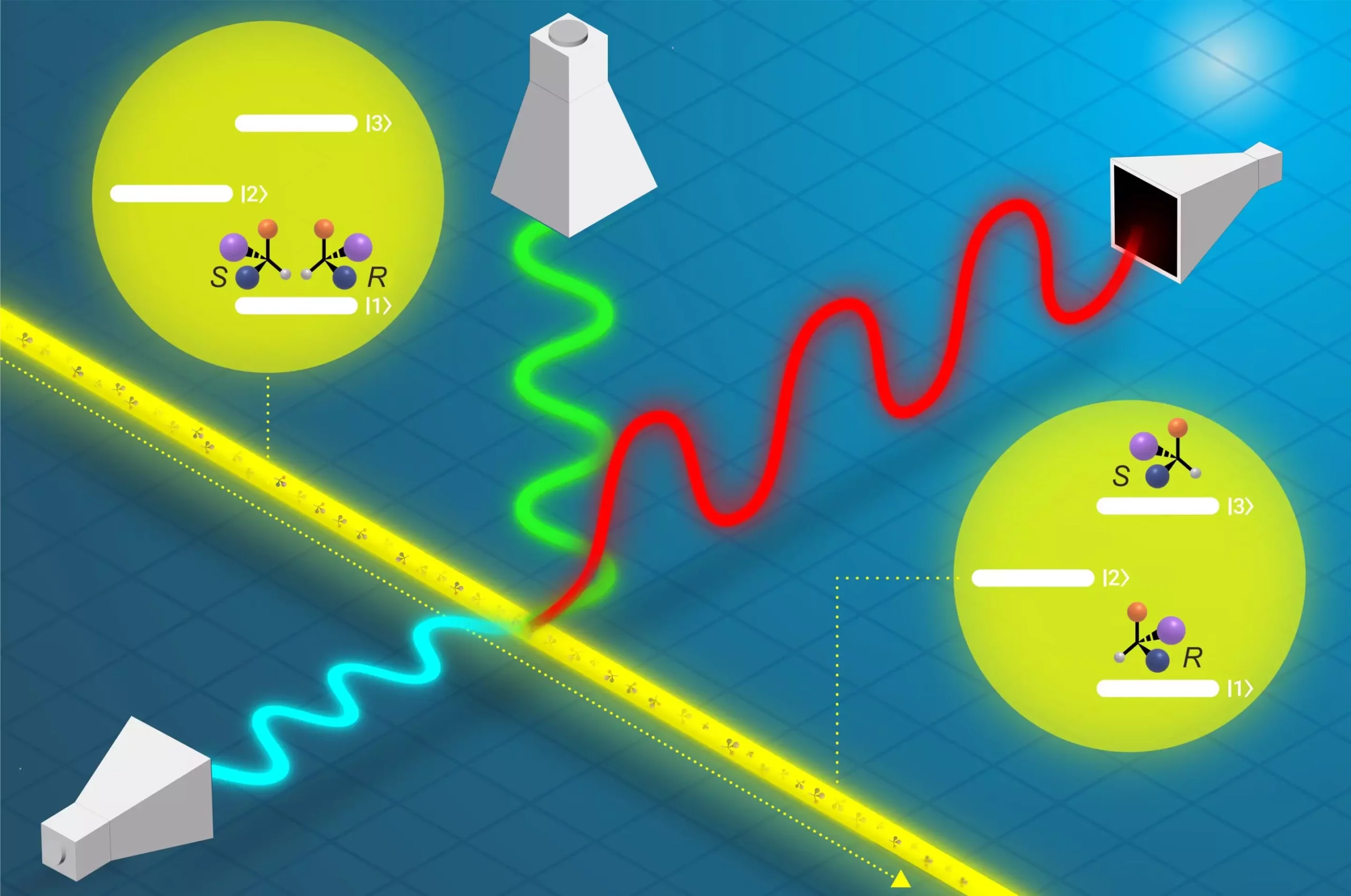The recent study titled “Near-complete chiral selection in rotational quantum states” published in Nature Communications has brought attention to the breakthrough achieved by the Controlled Molecules Group at the Fritz Haber Institute. Led by Dr. Sandra Eibenberger-Arias, the team has made significant progress in the field of chiral molecules, challenging previous assumptions and opening up new avenues for research.
Chiral molecules play a fundamental role in the structure of life, existing as two non-superimposable mirror image versions known as enantiomers. Similar to our left and right hands, these molecules have profound implications in various scientific disciplines, from the spatial separation of enantiomers in the gas phase to understanding the origins of homochirality in biological systems.
The scientific community previously believed that perfect control over the quantum states of chiral molecules was theoretically possible but practically unattainable. However, the team at the Fritz Haber Institute has demonstrated otherwise. By creating optimal experimental conditions, they were able to achieve a remarkable 96% purity in the quantum state of one enantiomer, bringing them closer to the goal of 100% selectivity.
The experiment conducted by the team involved using tailored microwave fields in combination with ultraviolet radiation to control the rotational motions of the molecules. By cooling the rotational temperature to nearly absolute zero, the molecules were exposed to resonant UV and microwave radiation in three interaction regions, leading to a high selectivity of the chosen enantiomer in the rotational quantum states.
The breakthrough in controlling chiral molecules opens up new opportunities for exploring fundamental physics and chemistry effects. The team’s method provides a new avenue for studying parity violation in chiral molecules, a phenomenon that has been theorized but not yet observed experimentally. This discovery could revolutionize our understanding of the fundamental (a)symmetries in the universe.
The study on near-complete chiral selection in rotational quantum states marks a significant advancement in molecular physics. The ability to control chiral molecules and their quantum states with such precision has the potential to drive new research approaches and applications in the field. This breakthrough not only challenges previous assumptions but also opens up exciting possibilities for further exploration of the complexities of chiral molecules and their role in the fabric of life.


Leave a Reply